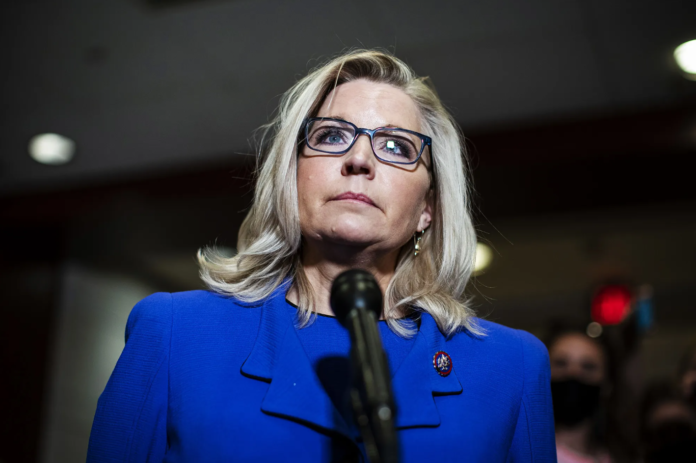In a passionate address at Drake University, former Republican congresswoman Liz Cheney sounded an alarm over the radical transformation engulfing the Republican Party. Cheney, who played a prominent role on the January 6 select committee, issued a dire caution about the GOP’s unwavering loyalty to Donald Trump, labeling this allegiance as a clear and present danger to American democracy.
Cheney’s critique extends beyond mere policy disputes; it strikes at the heart of constitutional fidelity. She posits that the Republican Party, by its current trajectory, is straying from its constitutional commitments, threatening the very foundations of American governance. This shift, according to Cheney, poses a tangible risk should Trump secure the presidency once again, fearing that Trump’s disdain for the peaceful transfer of power, a cornerstone of democratic tradition, could lead to an unprecedented constitutional crisis.
Trump’s flirtation with violating the 22nd Amendment, coupled with his December 2022 call to “terminate” the Constitution to facilitate his return to office, underscores Cheney’s concerns. These statements not only highlight Trump’s autocratic leanings but also underscore a chilling readiness to undermine democratic norms for personal gain.
In her speech, Cheney urged Americans to prioritize the country’s constitutional integrity over partisan policy preferences. She argued that while policy missteps are navigable, the erosion of democratic principles under a leader willing to “torch the Constitution” is irrevocable.
Furthermore, Cheney criticized her fellow Republicans for their complicity in normalizing Trump’s behavior, suggesting that their silence and excuses have contributed to a dangerous underestimation of Trump’s threat to democracy. This critique gains added weight against the backdrop of Trump’s recent calls for the imprisonment of January 6 committee members, including Cheney, without legal justification—a move that seems aimed at retaliating against those who challenge his narrative.
While Cheney’s outspoken stance against Trump’s authoritarian impulses has earned her praise in some quarters, it’s crucial to recognize the broader context of the Republican Party’s evolution. Critics argue that Trumpism is not an anomaly but the culmination of a long-term shift towards exclusionary and undemocratic ideologies within the GOP. This perspective suggests that Cheney’s current defense of democratic values, while commendable, also requires an acknowledgment of the systemic issues that facilitated Trump’s rise within the party.
Cheney’s call to action is a sobering reminder of the stakes involved in the upcoming electoral cycles. It challenges Americans to reflect deeply on the values that define their political choices and the implications of those choices for the future of democracy in the United States. As the political landscape continues to evolve, Cheney’s warnings underscore the need for vigilance, critical engagement, and a collective commitment to safeguarding the principles enshrined in the Constitution.



